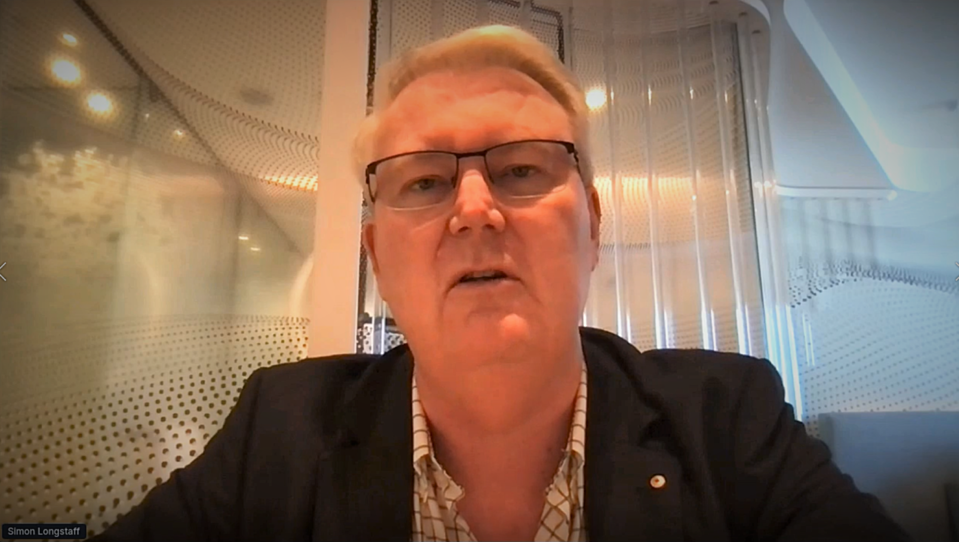Grants scrutiny: What to do when the auditor comes knocking
Posted on 31 Mar 2021
By Joshua Presser, director of special projects, SmartyGrants
Grant programs have been in the news lately for all the wrong reasons, with government grant programs in particular attracting high levels of scrutiny.

Seasoned investigator and former NSW Deputy Ombudsman, Chris Wheeler, told a national conference of leading grantmakers recently that funders should expect that it was “only a matter of time” before they were targeted by an investigation or audit.
Mr Wheeler told delegates at the March 2021 Grantmaking Intelligence Conference that there were plenty of actions that funders could take to ensure organisational practices and procedures were able to stand up to rigorous scrutiny.
Ensure that you have clearly defined criteria for applications and decisions
Many grantmakers had come to grief by lacking clearly defined criteria, Mr Wheeler said, suggesting that if criteria were not clearly defined and publicised in guidelines, it was impossible to run a fair and transparent selection process, and very difficult to defend decisions against scrutiny.
Mr Wheeler cited recent media controversy relating to “ministers and/or their personal staff directing that decisions be made that were not based on the approved criteria”.
So, what should grantmakers do if they find themselves in the unfortunate position of being directed to implement funding decisions that seem inconsistent with the criteria?
Mr Wheeler said grantmakers should “diplomatically” point out those discrepancies “in writing” and that they should “ask for a written instruction, or directions to make that decision.”
Understand decision-making authority
Another common issue uncovered by auditors, Mr Wheeler said, arose when officers acted outside their delegated authority when making decisions about awarding grants.
He had the following advice for grantmakers looking to avoid this issue:
- Don’t make decisions about awarding grants without explicit written authority to do so.
- Don’t purport or suggest a decision has been made about the awarding of a grant without evidence in writing that a decision has been made by a person with authority.
- Don’t implement a decision about the awarding of a grant without written instructions to do so from somebody with authority to issue such instructions.
Documentation and record keeping
Mr Wheeler said documentation often failed to stand up during investigations.
“One of the common problems … is the failure to document decisions and actions. It’s an almost universal failure,” he said.
Mr Wheeler said grantmakers must ensure that they clearly documented reasons for decisions, as well as who made the decisions, and when they were made.
It was pointless documenting decisions if an organisation could not find the record when the auditor came calling, he said, stressing that organisations must be able to produce required documents when asked.
















Gallery pictures (L-R): SmartyGrants founder Denis Moriarty; Our Community director of innovation Sarah Barker; Innovation Lab data scientist; Nathan Mifsud; Conference facilitators Barry Smith and Fiona Dempster; Australian Small Business and Family Enterprise Ombudsman Craig Latham; Chuck Berger of Kimberley Community Legal Service; “Return to purpose” and “Big issues” panels hosted by Our Community chaos controller Kathy Richardson, State/Federal Muster host and SmartyGrants special projects director Joshua Presser; Teena Blewitt from the Department of Social Services; Chris Wheeler, consultant and former deputy NSW ombudsman; Dr Simon Longstaff from the Ethics Centre; SmartyGrants leaders in the “behind the curtain” session; Jeremy Kelshaw from the City of Sydney; Top conference contributor aka “Top Banana” Emily Costello; Presenters in the “Quick-fire grants” session and Local Government Muster host Jodie Shanks.
“Records are the corporate memory, everything else is anecdote. In an investigation, contemporaneous records carry a lot of weight. If it comes down to the weight given to contemporaneous records versus recall after the event … contemporaneous records always win.”
Get on the front foot
Mr Wheeler emphasised the importance of getting in first when issues came to light.
“If you become aware of a problem, almost without exception, you are in a better position if you find out first and implement adequate steps to investigate and deal with the problems that are identified,” he said.
Mr Wheeler said proactively approaching auditing or integrity bodies for assistance or advice was more likely to elicit a cooperative approach than if authorities had the matter brought to their attention via other means (e.g. complaints or tip-offs).
The importance of whistleblowing
Organisations wanting to get on the front foot needed “a workplace culture that supports internal disclosures of wrongdoing by staff,” Mr Wheeler said.
He recommended that grantmaking organisations put in place a whistleblowing policy that was strongly endorsed by senior management. Organisations should ensure staff were aware of the policy, and that they undergo regular training in its operation. Training should cover issues like who to contact to make a confidential disclosure and how the policy protected whistleblowers.
“It is important that staff who do make internal disclosures are protected and supported in practice and appropriate action is taken to address the concerns they raise,” Mr Wheeler said.